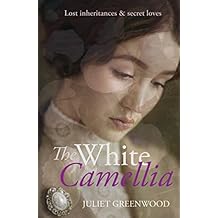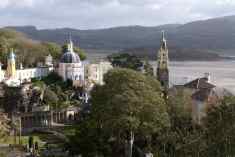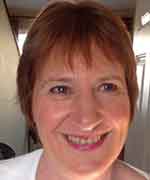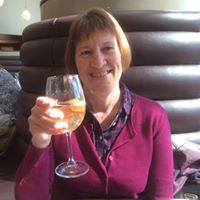Over the next few weeks I’ll be posting interviews with the authors who will be taking part in our Book Fair: http://www.narberthbookfair.co.uk/.
There are forty of us so, obviously, there are many genres for both adults and children. There will be talks an writing and books, creative writing workshops for adults and fun workshops for children, activities for the children and a fun book trail through Narberth, the gorgeous little market town in Pembrokeshire.
All free!!
And, of course, there will be the chance to chat with all the authors and to pick their brains on all aspects of writing. Even to buy their books and have them personally signed.
And, as usual, there will also be the writing competition: this year is a poetry competition: Submit a poem, in any form, of 20 lines or less, on the subject of : –
Books and Reading.
Having outgrown our previous venue we have been lucky to hire the Queens Hall: https://www.thequeenshall.org.uk/ who have been very generous in their support of the event.
Although, five years ago, I started organising the book fairs on my own I was soon joined by Alex Martin: http://amzn.to/2hZCgt2 and Thorne Moore: http://bit.ly/2rc5qyA. Unfortunately Alex has moved on to pastures new (although is still a great supporter), so Thorne and I have been joined by Elizabeth Sleight. Elizabeth is involved in the charity we are supporting through our raffle; The Harriet Davis Seaside Holiday Trust For Disabled Children: http://bit.ly/2sNyeKQ .
So, all the formalities now set out, I’ll be chatting with everyone week by week. Our next author is Juliet Greenwood. Juliet’s is rather a longer post than the others as I’ve also incorporated her #familysaga interview afterwards. Both fascinating so I’m sure you’ll enjoy them.

What literary pilgrimages have you gone on?
My most memorable pilgrimage was going to Howarth to the Bronte Museum. I went first as a teenager, when I’d first discovered ‘Jane Eyre’ and ‘The Tenant of Wildfell Hall’. It was fascinating to see where the sisters lived and worked, and I was amazed at the smallness of their dresses. The things I loved best were the tiny little books they’d written as children. I was creating books myself at the time, not nearly as tiny, and it was great to see that that was how my idols had begun their literary career!
The thing I remember most, though, is the graveyard, and the sounds and the atmosphere. When I was older, I walked the Pennine Way with friends. We reached Top Withens in the morning, swathed in mist, and sat and had breakfast in the ruins. That was definitely one of the most atmospheric mornings I’ve ever experienced.
Does writing energise or exhaust you?
Writing is the best buzz ever – but also the most exhausting. I find it’s always hard to get into, the temptation to go into the garden instead (or even clean the house) is overwhelming. But once I get into the story, my mind begins to fizz. Ideas come from all over the place and I can hardly keep up with writing them down. I hate stopping. I find the mind keeps on going, racing away, working at knots in the plot, so I’m always grabbing a pen in the middle of cooking, or meeting friends, or even emerging from the shower, to write things down before I forget. Then, just as suddenly, I crash. If I’ve managed to have several hours at the book, the brain goes to mush, just about up to Masterchef (seriously surreal for a life-long vegetarian), but very little else. But I find flickers of ideas are usually still working in the background, as knots in the plot can miraculously be resolved (usually in the middle of the night – I have notebooks all over the place).
What are common traps for aspiring writers?
I think the most common trap is thinking the book is finished. When I started, I realised the story had to go through several drafts, but it wasn’t until I first worked with an editor that I realised this isn’t just tinkering, and you need to be prepared to throw anything and everything out if it isn’t working. It gets less drastic as you become more experienced, but all books are worked on again and again, and again and again – and then the real editing process begins. I love the editing process, it’s when the book really comes together, but I never would have believed it is such hard work, and that I would loath the sight of the book by the end, as well as loving it for being the best it could possibly be. Like all good things, the art of writing a book is mostly hidden. Finishing a novel is definitely the hardest thing I’ve ever done.
Does a big ego help or hurt writers?
I think you need a big ego to give you faith that you can write a book and that someone else will want to read it, but also none at all in order to take criticism and, in the end, put your ego aside to work in the best interests of your novel. When it comes to publicity, you need to be generous and help others and not expect them to help you for nothing. There’s nothing worse than someone on Twitter shouting ‘buy my book!’ and nothing else. And even worse is the one who, the moment you follow them, direct messages you to demand you retweet their book, without so much as a hint they might return the favour. That kind of ego is its own worst enemy – especially as most writers are really supportive of each other and great at returning favours.
Did you ever consider writing under a pseudonym?
I do write under a pseudonym as well as under my own name. I really enjoy the freedom ‘Heather Pardoe’ gives me when I’m writing for magazines. She was how I was first published, so I’m very proud of her – even if she does tend to slope off to a beach in Barbados for long periods while Juliet Greenwood is stuck at home working her socks off!
Do you try more to be original or to deliver to readers what they want?
I try to write the kind of book I know readers love, but put my own slant on it. I write historical family sagas and timeshifts, usually focussed around a big old house and a family secret. I have a fascination with the lives of ordinary women in the past, who were often far more active and in control of their lives than history remembers them (if they are remembered at all). I tend to set an intensely personal story against a historical background. ‘We That are Left’ is set in WW1, but focuses on the experience of women working on the front line, as well as those keeping life going at home, and on the changes that made to their self-conception and expectations, as well as the tragedy of war. In ‘The White Camellia’, the story of one of the first women photojournalists is set against the long struggle of the suffrage movement, and the beginnings of the suffragettes, and the struggle for equal pay and the rights for women to have control over their lives and their money, as well as for the vote.
How did publishing your first book change your process of writing?
It made me approach the whole process with much more professionalism. It made me see that if I was going to be serious about this, I wasn’t just writing for myself, but to entertain and move readers. The first draft is always for myself – that’s okay, it’s a total mess and no one is going to read it. But from then on, I need to consider the needs of the reader, how they will see things, and what they need from a book, in order to make it at all publishable. That doesn’t mean compromising – it’s means more skill and more ingenuity, and being able to listen to others’ opinions – especially those with far more experience!
What was the best money you ever spent as a writer?
Buying my original computer. A very long time ago. It was a really difficult decision as I didn’t have much money, and it took a month’s wages. You’d fall about laughing at it now, but it changed my writing life. The miracle of not having to use a typewriter! And there were rumours of this strange new thing called the Internet. Little did I know how much that would change my writing life too, as well as allowing me to work freelance to support my writing.
How many unpublished and half-finished books do you have?
Loads! I read somewhere that an unpublished writer (and more than one ‘overnight success’) has about ten unpublished manuscripts lurking in a drawer. That’s about right for me. They aren’t all languishing. Some have become the basis of other books, and others the basis for serials I’ve written for magazines. Others are waiting for their time to come – while others (usually the early ones) will never, ever, see the light of day!
What does literary success look like to you?
Enchanting your readers, while writing what you love to write. And being able to earn enough money from your writing to live on, so you don’t have to try and squeeze writing and marketing in between the day job. Not zillions. Just enough to concentrate on the writing.
What one thing would you give up to become a better writer?
The day job! Mind you, working as a freelance academic proofreader does help my language skills and makes me super critical of my own manuscripts. I enjoy it, especially seeing the world from the point of view of students as far afield as China and Saudi Arabia, but I’d love to have the time to concentrate on my own work. One day ….
How long on average does it take you to write a book?
Approximately a year. I write the first draft in a mad rush, then, once I know my characters and the story, the real work begins. I’m usually thinking about the next one by the time I’m finishing the current one ready to go off to my editor. I spend a couple of weeks making the house look presentable again, then I’m off. It’s a never-ending process, and I wouldn’t have it any other way.

The White Camellia
Cornwall 1909
Sybil has fought her way up from nothing to become a successful
businesswoman. It seems she has the world at her feet.
Then, against her better judgement, she buys faded Tressillion House
on the wild Cornish cliffs. A house with a tragic past of greed, folly
and revenge, linked to the goldmine in its grounds. Sybil cannot
forget that the Tressillion family once destroyed everything she held
dear, or the revenge that, in a moment of bitter fury, she took to pay
them back. Her actions have had consequences that have haunted her
ever since, and surround her with secrets that could destroy
everything she has fought so hard to become.
But help comes from the most unexpected places, from the very family
she has destroyed, setting Sybil off on the long, hard road towards
self-forgiveness.
A thrilling story of loss and redemption, of the power of friendship,
and the enduring power of true love.
And now for the Narberth Book Fair Author Questions:
http://www.narberthbookfair.co.uk/
Why do you write?
I write because I have to – I get itchy fingers and can’t settle unless I get my regular ‘fix’ of writing.
What do you love most about the writing process?
I love the transformation of the original idea into the final book, and the many stages it goes through to get there. As new characters arise as the story develops, the book so often goes in entirely unexpected directions, so it becomes a voyage of discovery. I also love the final editing, when it all finally comes together – even though by that time I’m usually sick of the book, and have to fall in love with it all over again when I see it in print!
Are your characters based on real people or did they all come entirely from your imagination?
I always think my characters come purely from my imagination, but I think they really tend to come from an amalgamation of many people I have known, which then create a unique individual.
If you could write about anyone fiction/nonfiction who would you write about?
It would be Millicent Fawcett, the leader of the suffrage movement in the UK. Although she is being honoured as the first woman to have a statue in Parliament Square, she has been overshadowed by the Pankhursts and the suffragettes. She was an amazing woman, who, despite having no legal existence, successfully out-witted the male politicians. She won many rights we take for granted today and began the fight for equal pay for equal work. We owe her a huge debt, not least for ensuring that the UK parliament voted twice for women to have the vote. It also explains the anger and the violence of the suffragettes, which was due to the democratic process being overturned.
How many books have you written? Which is your favourite?
I’ve written four books, three for Honno Press, and three magazine serials. My favourite book is always the one I’ve just finished, because with each one I grow as a writer. But I’ll always have a soft spot for my first book for Honno, ‘Eden’s Garden’, because that was where my real journey as a writer began.
What genre do you consider your books? Have you considered writing in another genre?
I write historical fiction, set against the backdrop of the Victorian and Edwardian eras, usually involving a big old house, and family secrets, and women struggling to follow their own paths against the expectations of society. I’ve flirted with writing cosy crime, but I find I always come back to my own kind of book – although I’m always open to trying something new.
Could you tell us a bit about your most recent book and why it is a must-read?
‘The White Camellia’ is about a fading mansion in Edwardian Cornwall, and two very different women, whose families have been in a conflict that has led to tragedy. Both Bea and Sybil are increasingly haunted by a danger from the past, and have to decide whether to continue the family feud, or join forces. It’s a complex and entwined story about two brave, independent women and the men they love. Although the men are there to support them, it is Bea and Sybil who have to make their own choices, and who finally do the rescuing, in a nail-biting climax, when unexpected truths are revealed.
Does your book have a lesson? Moral?
That revenge always has unexpected consequences, and self-forgiveness is the hardest lesson of all.
What is your favourite part of the book?
The very last scene, which brings the story together – so I can’t say why!
Do your characters seem to hijack the story or do you feel like you have the reins of the story?
The characters always hijack the story. I’m in control for the first page of the first draft, but the moment the heroine requires a sister, friend, or even random passer-by, they’re off on their own path, and it’s anybody’s guess where we’ll end up. I just follow, bemused, feebly trying to keep them in order (unless they try to wander of into zombie territory, which my readers would not like at all, so then there’s trouble).
Do you have any hidden or uncommon talents?
I can make a pretty mean hand puppet with nothing more than a few bits of cloth and plenty of sequins (I used to do puppet story-telling workshops with children).
What would you say is your interesting writing quirk?
A touch of dry humour in unexpected places. It happens in both books and serials. I can’t help myself.
What do you like to do when you’re not writing?
I love gardening, and walking my dog in the Welsh hills where I can also indulge my passion for photography.
What is the most amusing thing that has ever happened to you? Not particularly to do with your writing
My day job is as an academic proofreader, mostly for students whose first language is not English. There are sometimes some very inappropriate expressions (usually down to the spellchecker) in the middle of a thesis. I’m afraid they are not repeatable, and the question is always whether to explain why you can’t say that sort of thing in polite society, or quietly brush it under the carpet…
Give us a random fact about yourself.
Before I had a dog, I rode a green lady’s bicycle, with three gears, all over Snowdonia. It didn’t half annoy the proper cyclists (especially as I unashamedly got off and walked at the slightest hill).
Juliet Bio
Juliet Greenwood is published by Honno Press. Her books are set in Wales, London, and Cornwall in Victorian and Edwardian times, and follow the lives of strong, independently-minded women struggling to find freedom and self-fulfilment. Her novels have reached #4 and #5 in the UK Amazon Kindle store, while ‘Eden’s Garden’ was a finalist for ‘The People’s Book Prize’. ‘We That are Left’ was completed with a Literature Wales Writers’ Bursary. She also writes serials and stories for magazines as ‘Heather Pardoe’.
Juliet’s great grandmother worked as a nail maker in Lye Waste, near Birmingham in the Black Country, hammering nails while rocking the cradle with her foot. Juliet’s grandmother worked her way up to become a cook in a big country house. Their stories have left Juliet with a passion for history, and in particular for the experiences of women, so often overlooked or forgotten.
Juliet lives in a traditional cottage in Snowdonia, and loves gardening and walking. Despite being halfway up a Welsh mountain, she grows delicious black grapes from a cutting from the Hampton Court vine.
LINKS
‘The White Camellia’, Honno Press, 2016
myBook.to/TheWhiteCamellia

‘We That Are Left’, Honno Press, 2014
myBook.to/WeThatareLeft

‘Eden’s Garden’, Honno Press, 2012
myBook.to/EdenGarden

Blog: http://julietgreenwoodauthor.wordpress.com/
Facebook: https://www.facebook.com/juliet.greenwood
Twitter: https://twitter.com/julietgreenwood
Pinterest: https://www.pinterest.com/julietgreenwood/





















![The Unravelling: Children can be very very cruel (A gripping domestic noir thriller) by [Moore, Thorne]](https://images-eu.ssl-images-amazon.com/images/I/51Z2mhk7BkL.jpg)





















